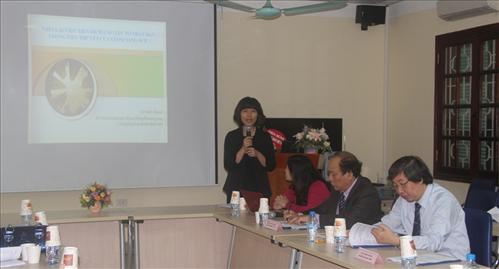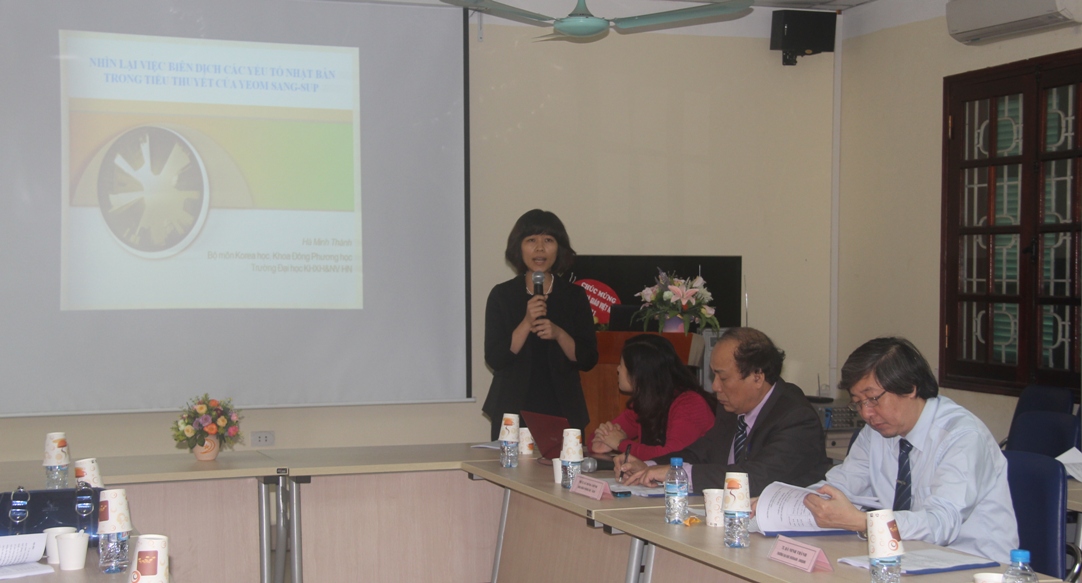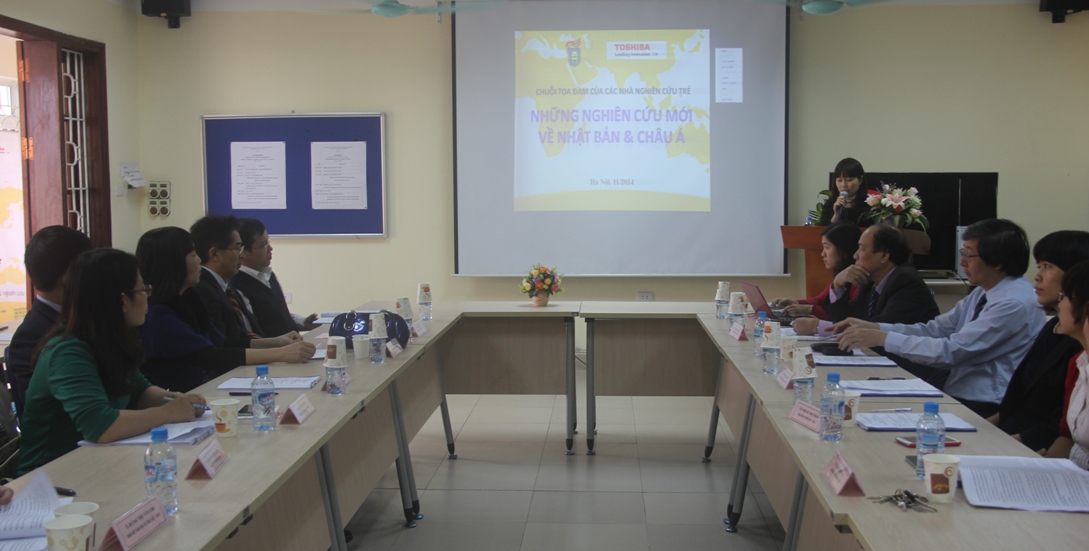

Mr. Fujita Shinya - Chief Representative of Toshiba Foundation Asia-Pacific, speaking at the seminar/Photo: Thanh Ha
At this seminar, young researchers presented three new studies.
Dr. Ha Minh Thanh's paper (Department of Korean Studies, Faculty of Oriental Studies) on "Revisiting the Translation of Japanese Elements in Yeim Sang-sup's Novels" discusses translation criticism of Korean literary works, approaching the issue by pointing out limitations in translations when compared to the originals. The research subjects are two novels, "Before the Manse Movement" and "Three Generations," by the Korean writer Yeim Sang-sup. The scope of the research is limited to examining the Japanese-related elements expressed in these two novels.

Dr. Ha Minh Thanh presented his paper.A look back at the adaptation of Japanese elements in Yeim Sang-sup's novels."/Photo: Thanh Ha
Ms. Tran Truc Ly's paper (Department of Chinese Studies, Faculty of Oriental Studies) is titled "Hu Shi's Proposals on Women's Issues in the New Youth Magazine". Hu Shi was a highly influential researcher, educator, and social activist in China in the early 20th century. He was actively involved in many fields, including research and journalism, aiming to reform society, criticize authoritarianism, promote freedom and democracy, and respect individual rights. The paper analyzes Hu Shi's views on issues related to women: criticizing outdated societal views that restrict women, calling on women to recognize their own rights, and offering social proposals to liberate women from feudal customs and promote their abilities and freedom…

The scene at the seminar/Photo: Thanh Ha
Ms. Phung Thi Thao (Department of Indian Studies, Faculty of Oriental Studies) presented a paper on "Panchsheel and its implications for the Geneva Accords and the Final Declaration of the Bandung Conference." Panchsheel is the name of five fundamental principles first introduced in the Agreement between the Republic of India and the People's Republic of China on the exchange of cultural trade between the Tibet Autonomous Region and India (1954). Derived from the five precepts of Buddhism, Panchsheel, also known as the five principles of peaceful coexistence, centers on respect for sovereignty and territorial integrity, non-aggression, and non-interference in each other's internal affairs. These principles guide relations between nations in international affairs. This is evidenced by the influence of the five Panchsheel principles on several legal documents such as the Geneva Accords on the ceasefire in Vietnam (July 1954) and the Final Declaration of the Asian-African Conference in Bandung, Indonesia (April 1955).
Author:Thanh Ha
Newer news
Older news